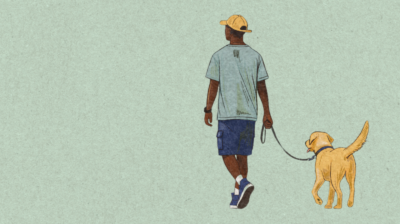How the pressure on men impacts our mental health
Ross talks about gender expectations and the impact this has on how he feels about himself and others

What does it mean to be a man? To me, it’s knowing I’ll be paid more and be expected to be stronger purely due to being born a certain way. Does it also mean I will have my own gender expectations, even if I do not want to have them, certainly.
Whenever I hear phrases of “Be a Man” or “Man Up”, it sounds so cliché to me that I assume it is the end of a funny joke. However, I rarely actually hear these phrases, but rather I feel these societal pressures, and that is what gets me. It can be the pressure of being a certain way, even if many media campaigns may say otherwise.
For myself, it means apparently needing to make the first move when it comes to dates and relationships. As an introverted person with ADHD, it has meant a lot of indecisiveness and unsureness that by the time I convince myself to ask, it’s most likely too late. This can also be hard when trying to connect with people, especially during lockdown. In my head, there is seemingly no reason to talk to people, but I also want to reach out to people.
The impact on my mental health
This dilemma can increase feelings of loneliness, especially with the pressure to be OK and not to check in as much, which can be excruciating at times. This can be hard on my mental health, especially as someone who likes to have a close knit group rather than someone who wants to have tons of friends, as for me it feels shallow. When someone says “we should meet up sometime” but then proceed to not do that, it can be even worse too, and I worry if it’s me that’s the problem when it might not be at all.
These pressures led me to be frustrated, wanting to be alone, feeling lonely and not content with myself. In the past I deleted my social media after my 21st birthday as not enough people wished me happy birthday but then I regretted it a few days later. It’s a feeling of inadequacy. To “be a man” is pressure to be the “best” but somehow you can always feel like you’re not being the best and feel like you’re not good enough.
Getting support for our mental health
It’s no secret too that reaching out for support can be harder as a young man. I attended eight sessions of counselling two years ago. I put a lot of pressure on myself to finish them before college started to seem more independent and OK with myself, when I knew then I was nowhere near ready for college at the time, and only recently feel confident in that fact. I’ve also noticed that most of my friends happen to be female, unintentionally of course but noticing that I could always seem to empathise and talk more with that demographic then with my own is food for thought.
However, recently, I think I have come to terms with it. I’ll be unapologetic in saying it’s the women in my life that make me see what being a man truly means. It’s to be caring, to be open to listening, and most of all to reach out to all, especially those you have not heard from recently. This especially applies to the men in your life, with men accounting for eight out of 10 suicides. From my experience of mental health organisations and international NGOs, being male is still an exception rather than a rule, so it’s important that we encourage men to get the support they need, when they need it.
Be the man you want to be
So, do reach out to your mates. A simple message can be the world to them, just asking them how they are. Feel free to express your emotions, even if like me, you may find difficulty in doing so. Most of all, check in with yourself and be honest, is the man I am really who I think I am. I learned that the hard way, but some reflection or an honest appraisal can go a long way to better you and to truly like the man you want to be
Feeling overwhelmed and want to talk to someone?
- Get anonymous support 24/7 with our text message support service
- Connect with a trained volunteer who will listen to you, and help you to move forward feeling better
- Whatsapp us now or free-text SPUNOUT to 50808 to begin.
- Find out more about our text message support service
If you are a customer of the 48 or An Post network or cannot get through using the ‘50808’ short code please text HELLO to 086 1800 280 (standard message rates may apply). Some smaller networks do not support short codes like ‘50808’.






